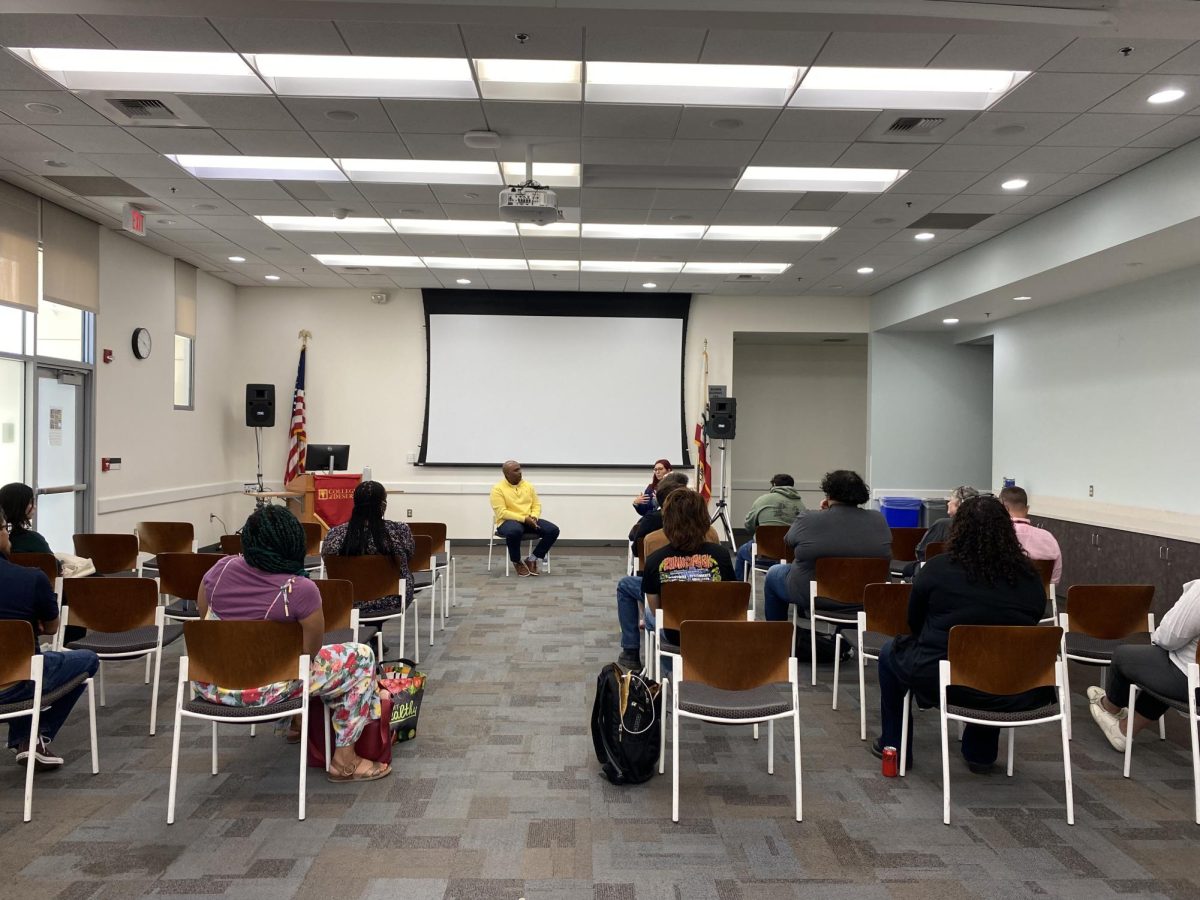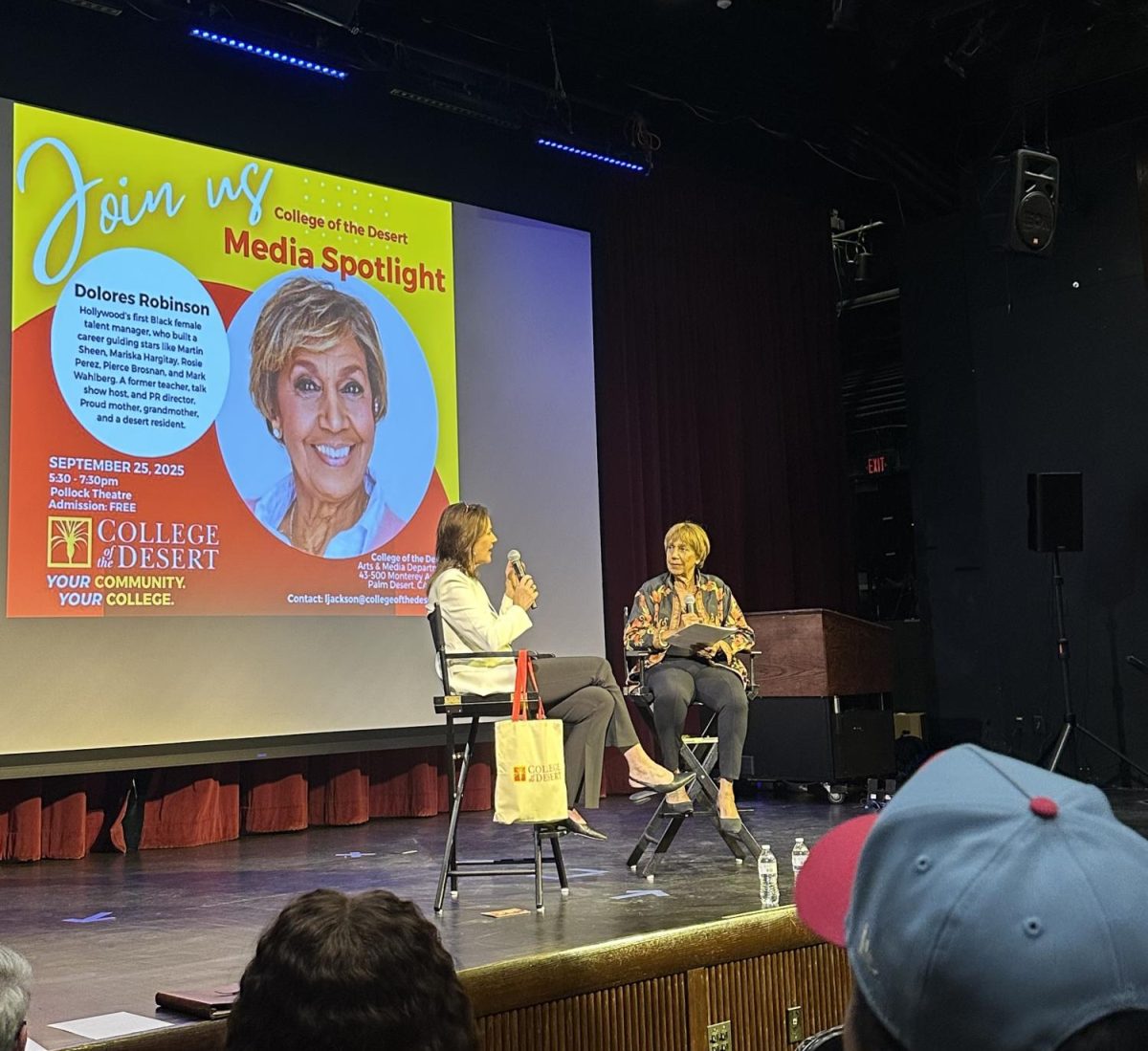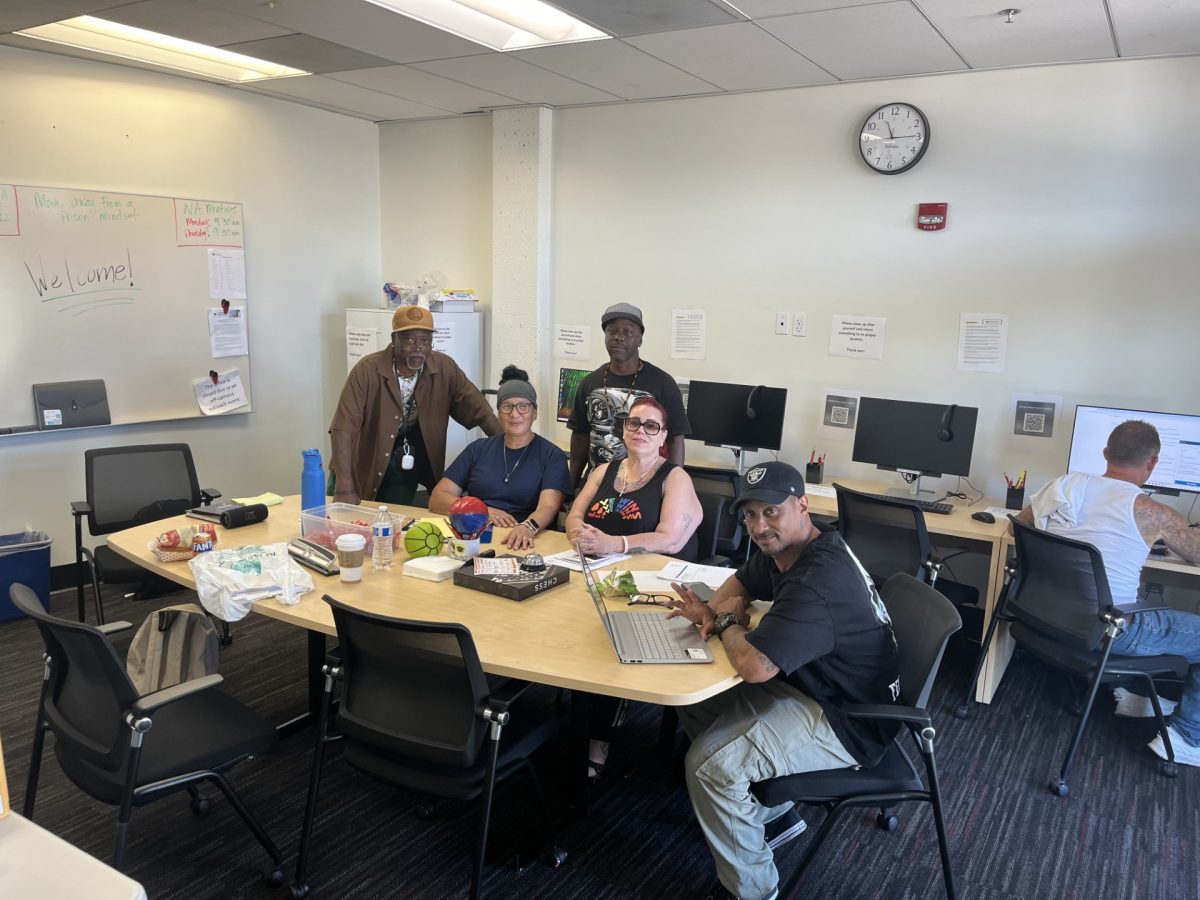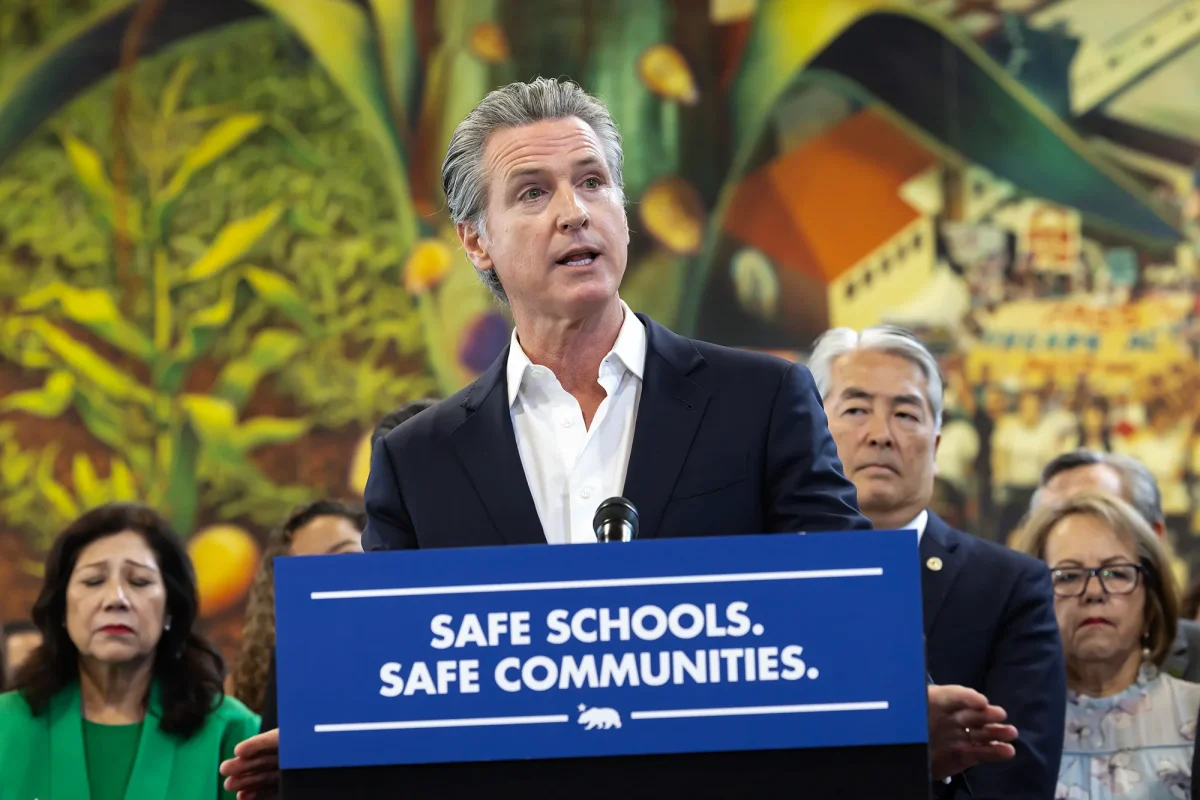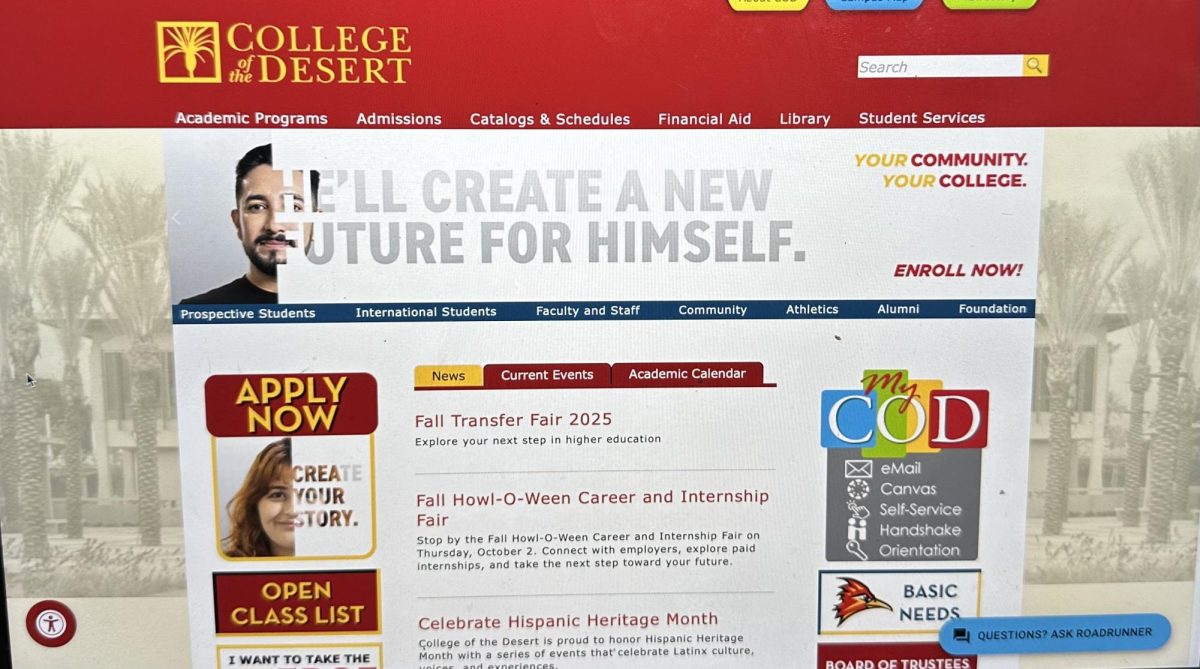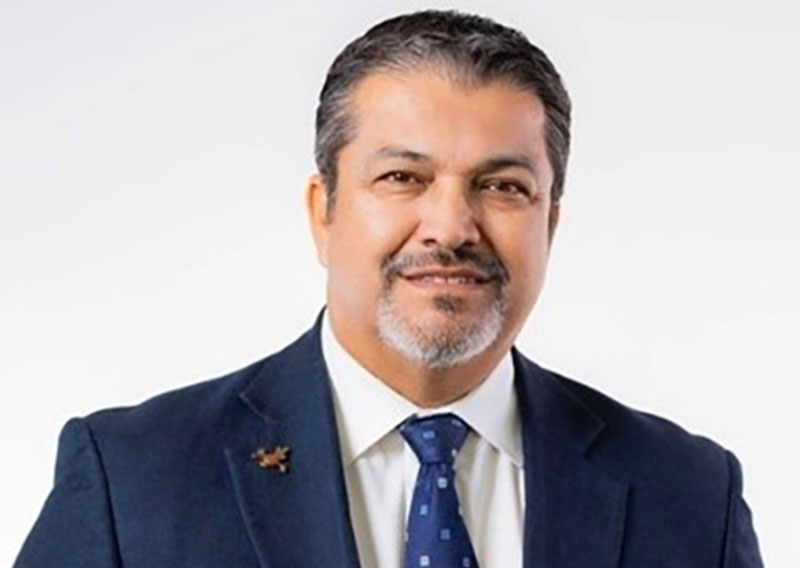COD’s Veteran Resource Center and TRiO Veteran Student Support Services held a panel regarding mental health in a safe, conversational, and open manner. They also led a general discussion to educate attendees on how to help themselves and others when struggling to improve their mental well-being.
Psychologist Dr. Darnell Durrah and clinical therapist Lori McCallum Bailey led the panel. After introducing themselves, the panelists began the conversation by discussing their techniques when they had a new client. Durrah compared finding a therapist to finding a partner and said, “A therapy relationship is a sacred relationship.” Bailey and Durrah stressed the importance of authentic connections with their clients. Durrah explained that it was okay and even sometimes normal to see a few therapists for consultations before finding the right one. “You can swipe left on a therapist,” joked Durrah.
Durrah and Bailey agreed that they aim to meet the client where they’re at when they take on a new client. They both talked about how they educate themselves on various aspects of the communities they serve, such as cultural expectations/dynamics and religious beliefs. Both feel that clients should feel free from the need to explain their lives to receive the help they seek.
Bailey said therapy is an available tool for people to use more than once. Even after clients complete the recommended sessions, she says it’s perfectly normal to need to go back when triggers come up. “Just because you finish therapy doesn’t mean you won’t need to go back, and that’s okay,” said Bailey. She explained how therapy gives people the preparation to work past triggers, but there could still be things nobody can prepare for that can trigger them.
They advised students who were watching a loved one struggle with their mental health but didn’t want assistance. They first emphasized how crucial it was for them to take care of themselves first. Bailey said, “You can’t keep pouring from a cup you never refill. It will eventually run out”.
“Once we normalize dysfunction, we forget what functioning is,” said Durrah. Both also advised building a solid support system around themselves to ensure their mental well-being while helping a loved one since it can be challenging. Bailey then stated that when speaking with a family member, it is important to tell them what they are seeing and how it makes them feel.
Durrah took the time to acknowledge how systematically tricky it can be for students to feel like their mental health is a valid priority. “We need to create a space for checking in,” he noted. Durrah reflected on his time as a college student and talked about how he always noticed that professors would put mental health resources in the back of the syllabus. When Durrah became an adjunct professor, he put those resources at the front of his syllabus “right under office hours.”
The psychologist and clinical therapist also discussed imposter syndrome and how it affects mental health. Durrah called it an “identity issue” and said it is best to “accept and not fake” your personality. He realized when he stopped giving a fake laugh to a joke he didn’t understand or claimed to know a pop culture reference, he didn’t know about, he began to feel more comfortable asking questions and being in new environments.
The faculty in attendance contributed to this conversation as well. Political science professor Mzilikazi Koné said that she noticed that her imposter syndrome was largely caused by a “system” that has created a negative feeling. “It’s a system that has created a space I wasn’t allowed in previously,” Koné said. “This is not my problem that these places have been discriminatory. It doesn’t mean I don’t belong.” She closed her commentary by noticing how “intellectualizing” her thoughts was a practice she felt was helpful to curbing imposter syndrome.
The panelists closed the discussion by acknowledging what keeps them as successful as mental health professionals. “Supervision,” they both said almost simultaneously. They noted how they lean on their supervisors to avoid challenges such as role conflict and emotionally taking on too much of their clients’ situations. They fully acknowledge that even though they are mental health professionals, they still refer to the advice of those who work above them.

